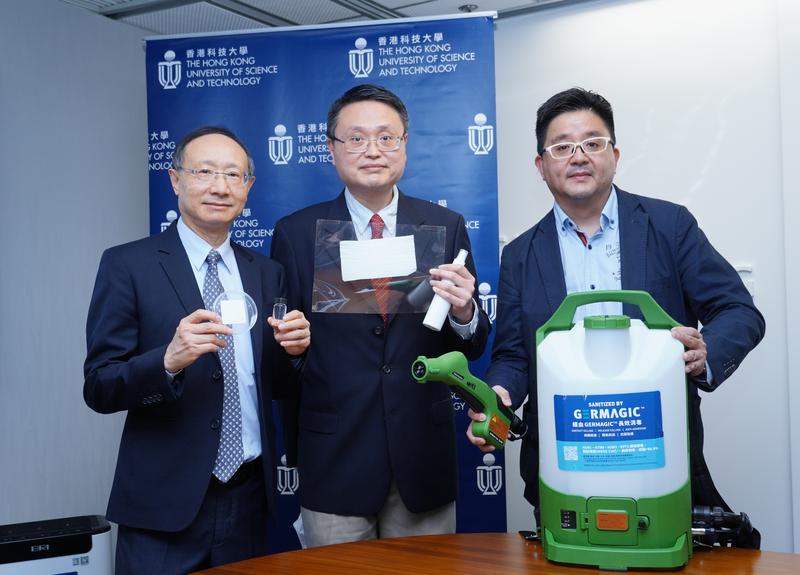 In this undated photo, (from left) Prof YEUNG King-lun from HKUST’s Department of Chemical & Biological Engineering; Prof Joseph KWAN, Adjunct Professor from the Division of Environment & Sustainability and Mr Hamilton HUNG, Chief Marketing Officer of HKUST’s industrial partner Chiaphua Industries Ltd, present the multiple opportunities in applications of the new coating formula MAP-1. (PHOTO PROVIDED TO CHINA DAILY)
In this undated photo, (from left) Prof YEUNG King-lun from HKUST’s Department of Chemical & Biological Engineering; Prof Joseph KWAN, Adjunct Professor from the Division of Environment & Sustainability and Mr Hamilton HUNG, Chief Marketing Officer of HKUST’s industrial partner Chiaphua Industries Ltd, present the multiple opportunities in applications of the new coating formula MAP-1. (PHOTO PROVIDED TO CHINA DAILY)
HONG KONG – Researchers from the Hong University of Science and Technology (HKUST) have developed a “smart” anti-microbial coating that can kill up to 99.9 percent of highly-infectious viruses and bacteria, including the deadly novel coronavirus.
The coating, when applied to surfaces like metals, glasses, plastics and fabrics, will turn into a protective film and protect the substances from viruses
The coating, when applied to surfaces like metals, glasses, plastics and fabrics, will turn into a protective film and protect the substances from viruses. It can stay effective for up to 90 days, according to a statement published on the university’s website Wednesday.
The new technology has already been made available to more than 70 daycare centers, elderly homes, kindergartens, primary and secondary schools in the city.
ALSO READ: HKUST’s invention to speed up diagnoses of novel coronavirus
According to the disinfection standard issued by the National Health Commission, the coating is non-toxic and safe for human skin, which means it could be used in hand sanitizers, clothing and surgical masks to protect people from the novel coronavirus or other viruses and bacteria.
Professor Yeung King-lun from the Department of Chemical and Biological Engineering and leader of the researchers’ team, said the new coating technology proved effective in two field trials to kill 99 percent and 95.8 percent of viruses and bacteria on curtains and ben linens, respectively.
READ MORE: Six new cases tied to Egypt tour


